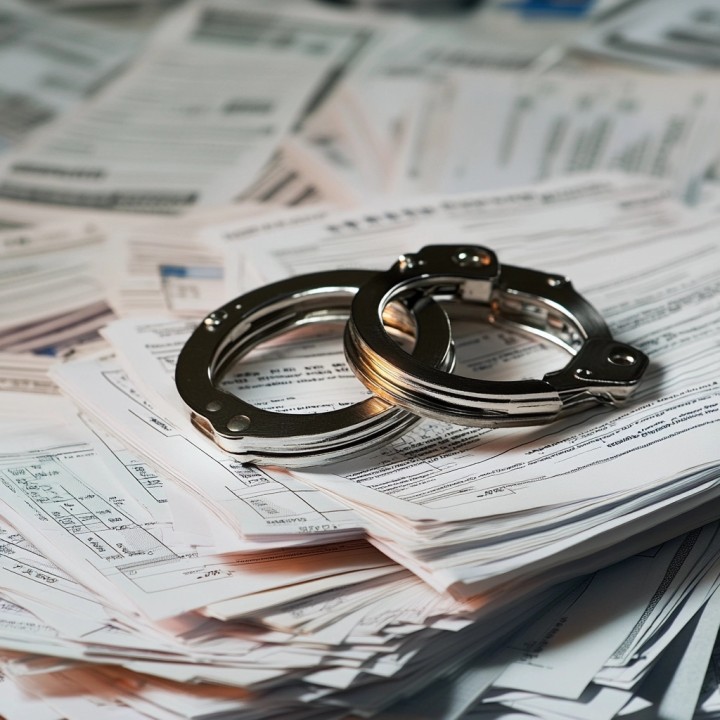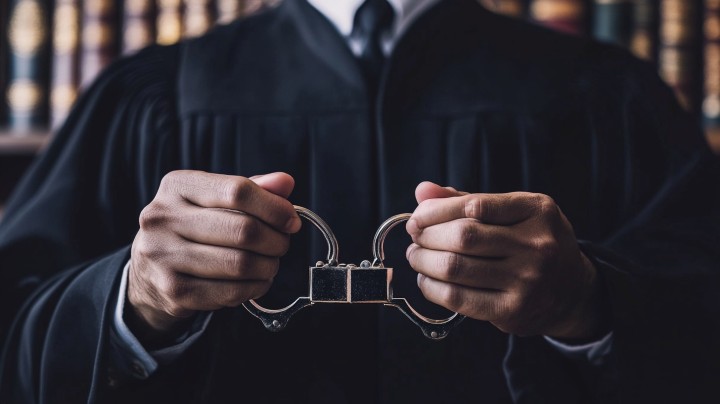Introduction
Bounty hunting is a unique profession with its own set of financial dynamics. Bounty hunters, also known as bail enforcement agents, earn money by capturing fugitives who have skipped bail. This article explores the various aspects of how bounty hunters make money, from payment structures to factors influencing income and strategies for enhancing earnings.
Understanding the Role of a Bounty Hunter
Definition
A bounty hunter is a professional who tracks down and captures fugitives who have skipped bail, ensuring they return to court.
Purpose
The primary purpose of a bounty hunter is to enforce the terms of bail agreements and assist bail bond agencies in recovering their financial investments.
Legal Framework
Bounty hunters operate under specific legal regulations that vary by state. They must adhere to laws governing arrests, entry into private property, and the use of force.
History of Bounty Hunting
Bounty hunting has its origins in medieval England, where bail was used to ensure the accused would return for trial. The profession evolved significantly in the American Old West, where bounty hunters tracked down outlaws. Today, modern bounty hunting is more regulated, focusing on ensuring defendants return for their court appearances.
How Bounty Hunters Operate
Identifying Targets
Sources of Information
Bounty hunters work closely with bail bondsmen who provide details on fugitives. They also gather information from law enforcement databases, public records, and confidential informants.
Bail Bondsmen Partnerships
Collaboration with bail bondsmen is crucial as they provide the bounty hunter with cases to pursue and offer financial incentives for successful captures.
Investigative Techniques
Surveillance
Bounty hunters use surveillance techniques to track the movements and activities of their targets.
Public Records
Accessing public records helps bounty hunters gather crucial information about their targets’ whereabouts and activities.
Social Media
Social media platforms provide valuable insights into the lives of fugitives, helping bounty hunters locate them.
Apprehension Methods
Arrest Procedures
Bounty hunters must follow legal procedures when apprehending fugitives, including identifying themselves and presenting the necessary documentation.
Legal Considerations
They must be aware of and comply with state laws regarding arrests, entry into homes, and use of force.
Types of Payments for Bounty Hunters
Percentage Fees
Definition
Bounty hunters typically earn a percentage of the bail amount as their fee.
Calculation
This percentage usually ranges from 10% to 20% of the bail amount.
Examples
For a bail amount of $10,000, a bounty hunter might earn between $1,000 and $2,000.
Flat Fees
Definition
In some cases, bounty hunters may negotiate a flat fee for their services.
Negotiation
This fee is agreed upon before the bounty hunter takes on the case.
Examples
A flat fee might be used for high-profile cases or when the bail amount is not substantial.
Retainers
Definition
Some bounty hunters work on retainer for bail bond agencies, receiving a regular payment for their services.
Purpose
Retainers provide financial stability and ensure the bounty hunter’s availability for cases as they arise.
Examples
A bail bond agency might pay a bounty hunter a monthly retainer fee in addition to bonuses for successful captures.
Factors Influencing Bounty Hunter Income
Experience
Entry-Level vs. Experienced
New bounty hunters start with lower earnings, while experienced hunters with a proven track record command higher fees.
Skills Development
Proficiency in surveillance, negotiation, and self-defense enhances earning potential.
Reputation
Importance
A strong reputation for reliability and professionalism leads to more job opportunities and higher pay.
Building a Reputation
Consistently successful captures, ethical behavior, and strong client relationships build a solid reputation.
Maintaining Integrity
Upholding legal and ethical standards is crucial for long-term success and reputation.
Location
High-Demand Areas
Urban areas with higher crime rates offer more opportunities but also come with increased risks.
Regional Variations
Different states and counties have varying regulations and demand levels for bounty hunters.
Legal Constraints
Local laws can significantly impact the ability to operate and the types of cases available.
Types of Bounties
Misdemeanors vs. Felonies
Felony cases typically offer higher rewards due to the increased risk and complexity.
High-Profile Cases
These can bring in substantial fees but involve greater danger and scrutiny.
Repeat Offenders
Tracking habitual offenders can be lucrative but challenging.
Income Variability in Bounty Hunting
Seasonal Trends
Peak Periods
Certain times of the year, such as holidays or summer, might see increased criminal activity and more work for bounty hunters.
Off-Seasons
Periods with lower crime rates can lead to reduced income opportunities.
Holiday Impact
Holidays can both increase and decrease workload, depending on crime patterns.
Economic Impact
Recession Effects
Economic downturns can influence crime rates and the demand for bounty hunters.
Crime Rate Correlation
Higher crime rates generally increase the demand for bounty hunting services.
Market Saturation
Competition Levels
High competition can drive down fees and reduce job opportunities.
Entry Barriers
Licensing requirements and training can be hurdles for new entrants.
Diversification
Offering additional services like private investigation can help maintain steady income.
Enhancing Bounty Hunter Income
Professional Development
Training Programs
Enrolling in specialized training programs enhances skills and marketability.
Certifications
Obtaining relevant certifications can increase credibility and job prospects.
Continuous Education
Staying updated with laws, technology, and best practices is essential.
Networking
Industry Associations
Joining associations provides access to resources, training, and networking opportunities.
Law Enforcement Connections
Building strong relationships with law enforcement can lead to referrals and collaborations.
Client Relationships
Maintaining good client relationships ensures repeat business and positive referrals.
Marketing Strategies
Online Presence
A professional website and active social media profiles can attract clients.
Reputation Management
Managing online reviews and testimonials helps build a positive image.
Client Acquisition
Effective marketing strategies, such as SEO and advertising, can attract new clients.
Case Studies and Real-Life Examples
Success Stories
High-Earning Bounty Hunters
Profiles of successful bounty hunters can provide insights and inspiration.
Career Paths
Understanding different career trajectories helps in planning a successful career.
Income Analysis
Typical Earnings Breakdown
Analyzing how income is typically divided helps in financial planning.
High vs. Low Earners
Identifying factors that differentiate high earners from low earners provides actionable insights.
Lessons Learned
Best Practices
Learning from successful bounty hunters helps in avoiding common mistakes.
Common Mistakes
Understanding pitfalls helps in navigating the industry more effectively.
Career Tips
Practical advice from experienced professionals aids in career development.
Future of Bounty Hunter Income
Trends
Current Trends
Analyzing current industry trends helps in forecasting future opportunities.
Future Projections
Understanding where the industry is headed aids in strategic planning.
Industry Changes
Keeping abreast of changes ensures relevance and competitiveness.
Technological Impact
Tools and Technologies
Utilizing the latest tools can increase efficiency and success rates.
Digital Transformation
Embracing digital platforms for research and tracking enhances capabilities.
Efficiency Gains
Technological advancements lead to faster and more accurate fugitive captures.
Predictions
Expert Opinions
Insights from industry experts provide a clearer picture of future developments.
Long-Term Outlook
Understanding the long-term potential helps in career planning.
Emerging Opportunities
Identifying new areas of opportunity ensures sustained growth and income.
Conclusion
Bounty hunter income is influenced by a myriad of factors, including experience, reputation, location, and types of bounties pursued. Understanding these factors and continuously developing skills, networking, and employing effective marketing strategies are key to maximizing earnings. The future of bounty hunting holds promise, with technological advancements and industry trends pointing towards new opportunities and greater efficiency.
FAQs
How do bounty hunters make money?
Bounty hunters make money by capturing fugitives who have skipped bail and earning a percentage of the bail amount or a negotiated fee.
What factors influence bounty hunter income?
Factors include experience, reputation, location, types of bounties, and market conditions.
Are bounty hunters paid upfront or after capture?
Payment is typically made after the successful capture and return of the fugitive, though some may work on retainers.
How can bounty hunters increase their earnings?
By gaining experience, building a strong reputation, networking, and employing effective marketing strategies.
What are the risks involved in bounty hunting?
Risks include physical danger, legal challenges, and financial uncertainty.
What is the future of bounty hunting?
The future looks promising with technological advancements and industry trends pointing towards more regulated practices and new opportunities.









